Talks On Psychoanalysis
shame
Episodes
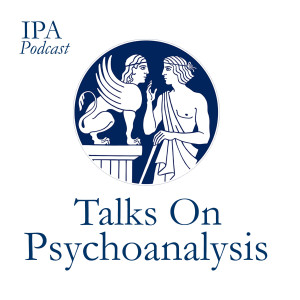
Wednesday Mar 19, 2025
Wednesday Mar 19, 2025
Medical interventions in fertility have transformed how people experience parenthood. How can clinicians navigate the intricate emotional landscape created by assisted reproduction?
In this episode, Renata Viola Vives and Ana Teresa Vale explore the complex relationship between assisted reproduction and psychoanalysis, drawing from their edited book, "Pregnancy, Assisted Reproduction and Psychoanalysis," published by Routledge. Conceived through years of clinical work and shaped by the collaborative encounters fostered by COWAP, the IPA Women and Psychoanalysis Committee, they explore how contemporary practices redefine our understanding of parenthood, identity, and desire.
Drawing on their extensive experience, the authors address the historical tensions between psychoanalysis and reproductive technologies, and highlight the need for a nuanced approach. By examining the emotional impact of procedures like gàmete donation and sùrrogacy, they emphasize the importance of understanding the anxieties and fantasies that accòmpany these kinds of journeys to parenthood.
Renata Viola Vives is a Clinical Psychologist and Psychoanalyst, a member of the Brazilian Society of Psychoanalysis in Porto Alegre, and currently COWAP's Latin-American representative. She is an editor and organizer of books on parenting, assisted reproduction, and adoption.
Ana Teresa Vale is a Clinical Psychologist and a Psychoanalyst, member of the Portuguese Psychoanalytic Society, teaching in her Society’s training program. She is Assistant Director of the Portuguese Psychoanalytic Journal, and currently COWAP's European representative.
This episode is presented in English, Portuguese, Spanish, and French. The English version is read by Ana Teresa Vale.
french
portuguese
spanish
This Podcast Series, published by the International Psychoanalytical Association, is part of the activities of the IPA Communication Committee and is produced by the IPA Podcast Editorial Team.
Co-Editors: Gaetano Pellegrini and Nicolle Zapien.
Editing and Post-Production: Massimiliano Guerrieri.
To stay informed about the latest podcast releases, please sign up today.

Thursday Dec 14, 2023
Thursday Dec 14, 2023
The place of sexuality in psychoanalytic treatment and training today: Can we observe a disappearance of sexuality in case reports and supervisions?
How does the evolving discourse on sexuality influence psychoanalytic practice and training? In an era where sexual dysphoria is seemingly on the rise, particularly among younger generations, questions arise about the current positioning of Freud's drive theory and the status of sexual issues in psychoanalytic education. Are we witnessing a shift where sexuality loses its central place within psychoanalytic thought?
In this episode of the IPA Talks On Psychoanalysis podcast series, we explore these questions through a comprehensive discussion. The focus is on the potential diminution of sexual themes in psychoanalytic case reports, as observed in recent years, and its implications for psychoanalytic methodology. The discourse originated in the 2021 supervisors' and training analysts' conference of the German Psychoanalytical Association (DPV) in Cologne, Germany and quickly spread to other places, reflecting global concerns about the reduced emphasis on sexuality in candidates' reports for qualification.
This exploration revisits some cornerstones of Freud's seminal theories but also examines the more modern theories and psychoanalytic techniques that emphasize transference-countertransference dynamics for the understanding of sexual fantasies and identities. The role of societal changes, shifts in sexual identity, and the impact of media on sexual behaviour and expression are critically analyzed.
The paper featured in this episode has been previously presented at various events, including a SPP Webinar and the 53rd IPA Congress in Cartagena. It has been translated and published in several psychoanalytic Journals. The IPA Talks On Psychoanalysis podcast series now offers it to its listeners in German, English, Spanish and Italian.
You can access the recent edition of the APA's Journal of Psychoanalysis, featuring a publication with two accompanying commentaries by Alicia Killner and Beatriz Zelcer, at this link: https://revista-de-psicoanalisis.apa.org.ar
Rotraut De Clerck is a renowned psychoanalyst of the German Psychoanalytical Association (DPV) and has been a long-term guest to the British Psychoanalytic Society (BPS). Her work notably intersects psychoanalysis with culture and public discourse. She has carried out the “Psychoanalysis in Literature – Literature in Psychoanalysis” series at the Literaturhaus Frankfurt, fostering dialogue between contemporary writers and Freud's texts. De Clerck's clinical interests include theories on the dynamic interplay of narcissism and object love, of the unconscious and changes in sexuality, including homosexuality “neo-sexualities” and the concepts of masochism. De Clerck's contributions extend to psychoanalytic portraits of literary figures like Albert Camus, Virginia Woolf, painters like Maria Lassnig and notably Lucian Freud. She chairs the EPF's “Psychoanalysis and Literature group and serves as a Consultant on the IPA Culture Committee. Her recent projects focus on the place of sexuality in psychoanalytic theory and practice today.
Link to the paper https://docs.google.com/document/d/1jwtEt3rBf0BSGsl_uFxv6xwVrPPr_dvR/edit?usp=drive_link&ouid=112457875385152358388&rtpof=true&sd=true
This episode is available also in:
German
Spanish
Italian
A subtitled version of this podcast is available on our YouTube channel:https://youtube.com/playlist?list=PLhxiwE76e0QaOquX3GujdwNLFsgxUQNXz&si=yf381EDu3pess6Yz
This Podcast Series, published by the International Psychoanalytical Association, is part of the activities of the IPA Communication Committee and is produced by the IPA Podcast Editorial Team.
Head of the Podcast Editorial Team: Gaetano Pellegrini.Editing and Post-Production: Massimiliano Guerrieri.
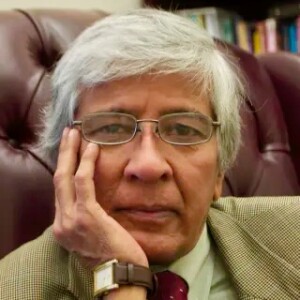
Friday Nov 03, 2023
Friday Nov 03, 2023
Still Life with Fruit and Wineglasses on a Silver Plate, c. 1659-1660, Willem Kalf. Courtesy Mauritshuis, The Hague.
Why do some people seem unable to achieve full satisfaction in things? What keeps them dissatisfied even after achieving their goals? And why does the Ego persist in avoiding mourning and sticking to the same solutions?
In this episode of the IPA Talks On Psychoanalysis podcast series, Salman Akhtar presents his theory that redefines the classical Kleinian conception of the rupture between Gratification and Satisfaction as a consequence of the death instinct derived attack upon the provider of gratification. This should indeed lead us to the search for a state of tranquility rather than an increase in tension. What role does the Life Instinct, instead, play in this restless search, in this excessive intense refusal to believe that further gratification shall not result in satisfaction?
This exploration not only offers a theoretical perspective but also has profound implications for clinical practice and our understanding of psychoanalytic technique.
The episode we share with you today is sourced from the wealth of content presented at the 53rd IPA Congress in Cartagena. It was a part of the "Fanning the Flames" Panel, featuring Salman Akhtar, alongside Cordelia Schmidt-Hellerau, Claudia Antonelli, and moderated by Fred Busch. We are delighted to announce the opportunity to watch the complete panel, along with many other outstanding presentations from the Cartagena Congress, on the www.ipa.world website.
Salman Akhtar, MD is an internationally known psychiatrist, psychoanalyst, writer, and poet based in the United States. He has published 108 authored or edited books and given lectures and workshops in over 40 countries. Dr.Akhtar has served on the editorial boards of the three most important journals of our field, namely Journal of the American Psychoanalytic Association (JAPA), IJP, and The Psychoanalytic Quarterly PQ. His books have been translated in many languages and he has received numerous professional honors, including the highly prestigious Sigourney Award for Distinguished Contributions to Psychoanalysis. Recently a 10-volume set of his Selected Papers was released at a festive ceremony at the Freud House& Museum in London. Dr. Akhtar has published 18 collections of poetry and serves as a Scholar-in-Residence at the Inter-Act Thater Company in Philadelphia.
A subtitled version of this podcast is available on our YouTube channel:
https://youtube.com/playlist?list=PLhxiwE76e0QaOquX3GujdwNLFsgxUQNXz&si=yf381EDu3pess6Yz

Friday Dec 16, 2022
Friday Dec 16, 2022
For those interested in the extensive written version on which this short talk is based, please contact the author at jfartaloytia@gmail.com .
From the Freudian conception of psychic bisexuality to the current approaches of transgenderism, the question of gender has knocked at the door of psychoanalysis to account for its articulation in the social context of its time. The different ways that people position themselves in life, confronts us with the challenge of thinking psychoanalytically about gender today.
Thus, this episode is entitled “Why and what is gender for?”.
Juan Francisco Artaloytia takes up this question. He talks about how and why gender emerged in the history of language and the species, and to what extent gender is still as important as it was in its origins.
Link to the paper https://docs.google.com/document/d/1QTbz_6lIbJRrl4N4QBwRwSAWZoP7vlgG/edit?usp=share_link&ouid=112457875385152358388&rtpof=true&sd=true
Juan Francisco Artaloytia holds a PhD, is a medical doctor, a psychiatrist and training Psychoanalyst of the Psychoanalytic Association of Madrid. He has been Secretary and Editor in Chief of the Journal of Psychoanalysis of the APM. He is currently Representative for Europe on the Board of the International Psychoanalytic Association. He has published articles and given lectures in national and international media. Freudian metapsychology is his field of reference, and topics of his special interests are psychosis, psychoanalytic training, and issues such as homosexuality and transsexuality. He has just published the book "Una metapsicología freudiana para el siglo XXI" (A Freudian metapsychology for the twenty-first century), which is a recapitulation of his work over the last 15 years.
this episode is available also in Spanish
This Podcast Series, published by the International Psychoanalytical Association, is part of the activities of the IPA Communication Committee and is produced by the IPA Podcast Editorial Team. Head of the Podcast Editorial Team is Gaetano Pellegrini. This episode was produced in collaboration with Ana Maria Martin Solar.
Editing and Post-Production: Massimiliano Guerrieri.
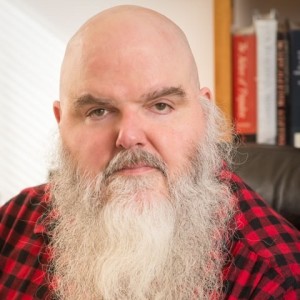
Monday Oct 03, 2022
Monday Oct 03, 2022
Veterans come home from war with shifted personalities, survival guilt after having lost comrades in battle, denial of feelings and shattered selves. A holding environment of safety if they ever had one is lost. How can a clinician gain the veteran’s trust and create the transitional space necessary for therapy that heals? In this podcast we will listen to Andrew Berry’s paper “The Interpersonal Psychoanalytic Approach to Working with Veterans where he takes a view of war veterans from an interpersonal perspective by seeking the deeper psychological meaning of posttraumatic stress disorder or PTSD. Exploring the veterans ‘relationships with others, provides meaning without which healing cannot be attained.
Andrew Berry holds a Ph.D., and a Psy.D. in psychology. He practices as a psychologist and psychoanalyst in Niskayuna, New York. He specializes in PTSD and other mental health needs of veterans. He has published on this topic and lectures at analytic institutes, and both national and international conferences. He completed a for year psychoanalytic program from the William Alanson White Institute in New York City in 2012.
Link to the original paper, published in Division Review. A Quarterly Psychoanalytic Forum in 2018. https://pep-web.org/search?preview=DR.018.0040A&q=Berry
This Podcast Series, published by the International Psychoanalytical Association, is part of the activities of the IPA Communication Committee and is produced by the IPA Podcast Editorial Team. Head of the Podcast Editorial Team is Gaetano Pellegrini. Editing and Postproduction: Massimiliano Guerrieri.
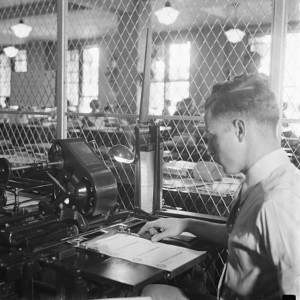
Wednesday May 04, 2022
Wednesday May 04, 2022
In this episode "Sublimation between suffering and pleasure at work", Christophe Dejours develops his theses on the psychodynamics of work, which he has particularly deepened.
He examines the work clinic from the angle of sublimation, which he breaks down into «bodypropriation», relationship to the other and relationship to civilisation; sublimation operates in all work, even the most ordinary; it has a powerful effect on identity and mental health.
Christophe Dejours shows how certain work organisations, by undermining the subjective springs of sublimation, can destabilise the individual and lead him to a psychological crisis or even to suicide.
Finally, he shows how much, according to him, living work - that is to say work enriched by what the subject adds to the prescriptions to achieve objectives - plays an essential role in the structuring and destructuring of the social link.
Christophe Dejours is a psychiatrist, a psychoanalyst, a full member and Training Analyst of the French Psychoanalytical Association and a full member of the Institute of Psychosomatics of Paris, professor emeritus of the University of Paris Nanterre and president of the scientific council of the Jean Laplanche Foundation - Institute of France.
Research on the frontiers of psychoanalysis: on the side of the biological sciences with psychosomatics and the metapsychology of the body. Worked with Pierre Marty and Michel Fain; on the side of the social sciences with the work clinic. Founded a new discipline: the psychodynamics of work taught in France and in several European countries, in Canada and in Latin America (Brazil, Argentina, Chile, Uruguay, Mexico)
Research on sexual theory, in collaboration with Jean Laplanche (between 1997 and 2012), in particular on the introduction of gender in sexual theory, on dream work, on the formation of an unrepressed unconscious and a topicality of cleavage.
He has written numerous articles and books, to name but a few:
DEJOURS C. (2015): 'PSYCHOPATHOLOGY OF WORK: Clinical Observations', Karnac Books, London, 102 pages.
DEJOURS C (2019): 'The Two Bodies: The Biological Body and the Erotic Body'. Psychoanalysis in Europe, 73: 16-27
DEJOURS C (2020): 'Psychoanalysis and the Genealogy of the Erogenous Body' Psychoanalysis.today, 12: The Body and Psychoanalysis. https://www.psychoanalysis.today/fr-FR/Home.aspx
Link to the paper https://docs.google.com/document/d/1BOOrx4U9wo-Z5IP7h4boMO5WnCHVJNtI/edit?usp=sharing&ouid=112457875385152358388&rtpof=true&sd=true
CREDITS
This podcast series, published by the International Psychoanalytical Association, is part of the activities of the IPA Communication Committee and is produced by the IPA Podcast Editorial Team. Head of the Podcast Editorial Team is Gaetano Pellegrini.
Editing and Post-Production: Massimiliano Guerrieri
Music: Chopin_Waltzes_Op.69. Performer Olga Gurevich. https://musopen.org/music/4415-waltzes-op-69/
Cover Image: Office work, Harris Ewing photographer, 1936, United States. Courtesy Library of Congress Prints and Photographs Division Washington, D.C. 20540 USA https://www.loc.gov/resource/hec.40970/
THIS EPISODE IS AVAILABLE ALSO IN FRENCH

Wednesday Mar 16, 2022
Wednesday Mar 16, 2022
Thoreau's cove, Lake Walden, Concord, Mass., Detroit Publishing Co., publisher, between 1900 and 1910. Courtesy Library of Congress.
Nancy Chodorow is Training and Supervising Analyst Emerita, Boston Psychoanalytic Society and Institute, Lecturer Part-time in Psychiatry at the Harvard Medical School/Cambridge Health Alliance, and Professor of Sociology Emerita, University of California, Berkeley. At UC Berkeley, she helped to create Women's Studies and was a co-founder of the University of California Interdisciplinary Psychoanalytic Consortium. She serves on the Holmes Commission on Racial Equality of the American Psychoanalytic Association and the Research Committee of the IPA, and she was recently Advisor to the Sexual and Gender Diversities Studies Committee of the IPA.
Chodorow has written on psychoanalysis and feminism, Loewald and the Loewaldian tradition, and psyche and society, recently naming an American Independent Tradition, Intersubjective Ego Psychology, whose founding theorists are Loewald and Erikson.
Her books include The Reproduction of Mothering; Feminism and Psychoanalytic Theory; Femininities, Masculinities, Sexualities; The Power of Feelings: Personal Meaning in Psychoanalysis, Gender and Culture; Individualizing Gender and Sexuality; and The Psychoanalytic Ear and the Sociological Eye: Toward an American Independent Tradition.
Her books include The Reproduction of Mothering; Feminism and Psychoanalytic Theory; Femininities, Masculinities, Sexualities; The Power of Feelings: Personal Meaning in Psychoanalysis, Gender and Culture; Individualizing Gender and Sexuality; and The Psychoanalytic Ear and the Sociological Eye: Toward an American Independent Tradition.
A book in her honor, Nancy Chodorow and The Reproduction of Mothering: 40 Years On (Bueskens, ed.) was published in 2020.
Chodorow's podcast draws on her writings on individualizing gender and sexuality, masculinities, and Freud's social writings, and on her research on early women psychoanalysts.
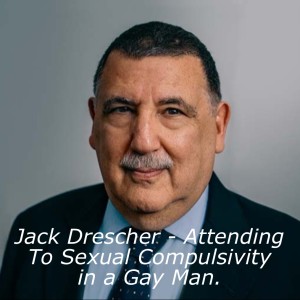
Sunday Nov 14, 2021
Sunday Nov 14, 2021
Themes of hiding abound in the developmental narratives of boys who grow up to be gay. Their need to hide is reinforced by the traumatizing public humiliation that ensues from either open expressions of same-sex desire or gender- nonconforming behavior. The experience of being discovered, punished, and humiliated for showing or acting on such feelings or behaviors can lead to hiding activities that persist long after the actual trauma is forgotten. When open expressions of same-sex intimacy are driven underground, clandestine and forbidden sexual activities, highly tinged with interpersonal anxiety, may become a significant mode of relatedness. This papers offers a clinical psychoanalytic approach for working with gay men that distinguishes the concept of sexual compulsion from that of sexual identity. Harry Stack Sullivan’s conceptualization of dissociative defenses is useful in clinically understanding and therapeutically working with gay men in general, and with sexually compulsive gay men in particular. This approach allows the sexual identities of gay men to be respected while addressing the compulsive behaviors that some of them find so troubling.
Jack Drescher is a psychiatrist and psychoanalyst in private practice in New York City, a Clinical Professor of Psychiatry at Columbia University and a Faculty Member of their Psychoanalytic program and their Division of Gender, Sexuality and Health. He is an adjunct Professor at the New York University Postdoctoral Program in Psychotherapy and Psychoanalysis and a Training and Supervising Analyst at the William Alanson White Institute. He also serves as a consultant to IPA’s Committee on Gender and Sexual Diversity.
SELECTED PRESENTATIONS AND PUBLICATIONS
Reed GM, *Drescher J, Krueger RB, Atalla E, Cochran SD, First MB, Cohen-Kettenis PT, et al. Revising the ICD-10 Mental and Behavioural Disorders classification of sexuality and gender identity based on current scientific evidence, best clinical practices, and human rights considerations. World Psychiatry, 15:205–221.
Drescher J, Schwartz A, Casoy, F, McIntosh CA, Hurley, B, Ashely K, et al: The growing regulation of conversion therapy. Journal of Medical Regulation, 102(2):7-12.
Drescher J, Cohen-Kettenis PT, Reed GM: Gender incongruence of childhood in the ICD-11: Controversies, proposal, and rationale. Lancet Psychiatry, 2016, 3:297-304.
Drescher J, Cohen-Kettenis PT, Winter S: Minding the body: Situating gender diagnoses in the ICD-11. International Review of Psychiatry, 2012, 24(6): 568–577.
Drescher J: Queer diagnoses: Parallels and contrasts in the history of homosexuality, gender variance, and the Diagnostic and Statistical Manual (DSM). Archives of Sexual Behavior, 2010, 39:427–460.
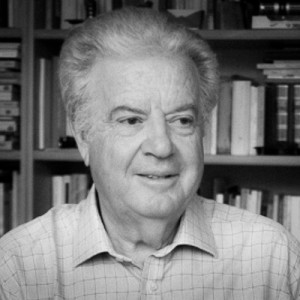
Thursday Nov 05, 2020
Thursday Nov 05, 2020
In this episode, Claudio Neri presents his article on "Vitality, Vitalism and Shame". Through a rich narrative, ranging from the memory of his encounter with Bion, to ethnopsychological studies on expressions of anger or joy, to the Myth of Anteo that shows the importance of contact with a safe and revitalizing object, Claudio Neri raises two questions: how can we distinguish natural vitality from exasperated vitalism? And what role does shame play in this presenting itself to others without the armor of one's own defenses?
If enthusiasm is contagious, it is possible, however, to observe how sometimes some individuals may not tolerate being close to a vital subject. The contagion effect, which emanates from the enthusiastic person, in fact puts them at risk of losing their balance. People who are depressed or very controlling, for example, may feel that the enthusiasm activates an aspect of themselves that they must strictly keep at bay.
What should the psychoanalyst finally do when the shame and the parade of embarrassment and fear are so intense as to prevent one of his patients from approaching vitalizing experiences?
Claudio Neri, MD, is Training and Supervising Analyst at the Italian Psychoanalytic Society, a founder member of the International Field Theory Association.
He is also a member of the the editorial board of the “European Journal of Psychotherapy and Counselling”; “Revue de Psychothérapie Psychanalytique de Groupe”; “Clínica y Análisis Grupal” and of the “Revista de Psicoànalisis de las Configuraciones Vinculares”.
He has published articles and books, primarily on the tecnique and theory of treatment. His work has been translated into six languages.
link to the paper https://drive.google.com/file/d/1LI_Qi9es_zCAPUc_uoFetrzy9-0XOf-i/view?usp=sharing
This episode is read by Brook Barbieri.
https://www.claudioneri.it
This episode is available also in Italian, Spanish, French.
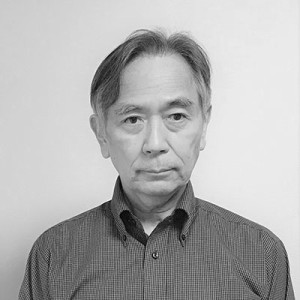
Thursday Oct 29, 2020
Thursday Oct 29, 2020
In this episode Dr. Kenichiro Okano displays how shame and social phobia could manifest differently between the Eastern and the Western countries, and investigates them from a psychoanalytical point of view. With his personal history of becoming a bicultural psychiatrist and psychoanalyst in the United States and in Japan, he considers that while passivity and non-action induced by shame can be misunderstood in Western culture, it can potentially exert some paradoxical power and influence, at least in the Japanese society. In its conceptualizations, the dissociation construct plays a central role, consistent with its research and clinical experience.
Dr Kenichiro Okano is a Japanese psychiatrist and psychoanalyst, and professor of Clinical Psychology at Kyoto University Department of Education. He is a training and supervising analyst in the Japan Psychoanalytic Society. He is the author of 26 books on psychoanalysis, dissociative disorder, and neurobiology. In 2016 he won The Japanese Psychoanalytical Association’s Distinguished Publications Award.
This episode is availablealso in Japanese